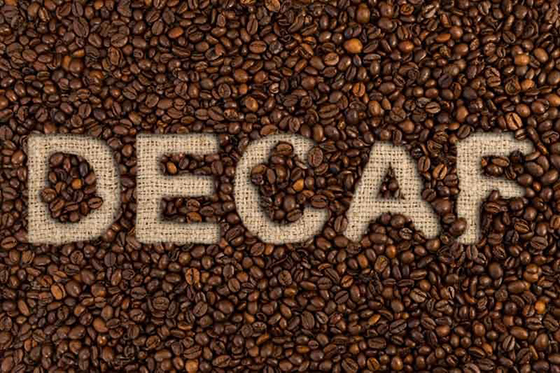Would you like it with or without caffeine ?

Living at an era in which everyone is constantly looking for healthier versions of our beloved products, coffee consumption and how it affects human health is being discussed intensely than ever. And if a few years ago decaffeinated beverages addressed to only a few consumers, they are now gaining ground, since it has become clear that reducing caffeine content does not affect coffee enjoyment or even coffees beneficial properties.

The very story of decaffeinated coffee is far from recent: the first attempt to remove caffeine was made in 1820, at the request of the German poet Goethe, but the mankind waited until the beginning of the 20th century to taste coffee without caffeine. The discovery of decaffeinated coffee was almost done by mistake: it was found that by soaking the coffee beans in sea water, the content of the active substance could be reduced without affecting the taste of the beverage. In the process, removing caffeine has been associated with dangerous chemicals, until we reached nowadays, where caffeine removal methods are absolutely safe, harmful and does not affect coffee’s taste at all.
- How decafeinated coffee is produced ;
In order to get decaffeinated coffee, the coffee beans are subjected to a special treatment that dramatically reduces their caffeine content. Coffee beans, before roasting and milling, are washed with water and special solutions, with methods that allow the removal of caffeine, while the coffee nutrients and the flavors are only slightly affected.
- What are the differences between decaf and regular coffee ?
The only difference that one will notice while enjoying a decaffeinated espresso or cappuccino, is, in most cases, a slightly lighter flavor and more delicate aroma, compared to a conventional coffee. It is worth noting that the content of decaffeinated coffee in caffeine is low, but it does not equal to zero. A cup of a decaffeinated beverage may contain as much as 7mg of caffeine, however, an amount substantially lesser than 70-140mg of the substance contained in a cup of plain coffee. On the other hand, the nutrients and antioxidants contained in coffee generally remain in the same amount, as the process leaves all valuable components of coffee substantially undisturbed. It has been estimated that precious coffee substances suffer a very small loss, of about 10%, in the process of removing caffeine
- Το whom is decaffeinated coffee addressed ?
Coffee’s antioxidant elements, included in both conventional and decaffeinated beverages, are very important for the human body, acting pro-actively against diseases such as diabetes, heart disease and several types of cancer. The lighter nature of decaffeinated coffee as well as its lower caffeine content makes coffee more accessible to people suffering from stomach upset (such as gastroesophageal reflux) or to people with a sensitive nervous system.
Caffeine-free coffee is also suitable for people who have to follow a low caffeine diet, such as women during pregnancy, as well as younger consumers, such as teens, who are not supposed to consume large amounts of caffeine. Moreover, by consuming only decaffeinated beverages, one loses only the benefits that have to do with the active substance itself, such as alertness of mental functions, increased metabolism and improved mood.
The spread of decaffeinated coffee is so widespread that it is easy to find caffeine - free coffee in various forms. Decaffeinated coffee is available in coffee beans, from leading companies like Lavazza, but also in other popular packagings, such as Lolo's decaffeinated capsules for Nespresso machines or caffeine-free Leggero Capsules, suitable for Mitaca Mps machines.
The mindset about decaffeinated coffee has changed, as consumers nowadays do not tend to regard it as tasteless or even unhealth. Decaffeinated coffee today is a great option for those who are required to reduce their daily intake of caffeine, but also for those who want to enjoy more coffees, without making any discount on the taste and the benefits of coffee.










